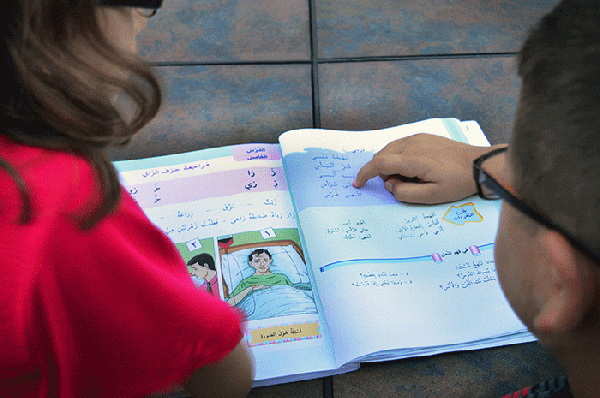
DEARBORN — Fewer young Arab Americans read and write Arabic as they seek to assimilate.
Hala Hazimeh, principal at the Muslim American Youth Academy (MAYA), a pre-school to eighth grade Arabic and Islamic school, said Dearborn is unlike any other Arab American community, because its members tend to stick closer together .
While those Arab Americans hold their culture dear, many fail to preserve one of its most defining aspects: the Arabic language. Some parents have opted out of teaching their children Arabic to assimilate into the American environment after they have immigrated; some just don’t have the time and some kids just don’t care enough to learn it.
Dearborn resident Khadiige Dourra is a single mother of four. She said her oldest son, Ali, fluently speaks, reads and writes Arabic. Her other kids, however, cannot. Knowing the language is an important aspect of Ali’s and Khadiige’s identities.
“One day, he will go back to his homeland and it’s important that he knows how to speak, read and write Arabic— especially as he interacts with his family,” Dourra said.
Dourra said reading the Quran is important to Ali, so she enrolled him in an Arabic and Islamic school in second grade to help with the learning process. The problem, she said, is the school only helped him learn the basics, like the alphabet. She said speaking Arabic at home mostly helped him learn the language.
As a single mother who worked long hours, it became overwhelming for her to also teach her other kids Arabic.
Hazimeh, who has been at MAYA for 13 years, said most of the students enrolled are second generation Arab Americans who might speak Arabic, but do not read and write it well.
“Some have been there since pre-school and can barely read and write [Arabic], because it’s not a priority to them,” Hazimeh said. “The English subjects are mainly what the parents are concerned with, since that’s what they need when they move on to high school and college.”
Another reason some students might not want to speak Arabic, according to Hazimeh, is that many non-Arabic speaking kids could feel that they are being talked about.
Some families find it even harder to teach their children Arabic. Mohamed Hefni, an Egyptian St. Clair Shores resident, said his wife is American and doesn’t speak Arabic, making it difficult for him to speak it at home. Hefni said he tried teaching his 18-year-old twin daughters Arabic, until it became too challenging.
Hefni said he enrolled his daughters in an Arabic school, but it didn’t help. According to him, the problem was that most of the kids in the classes were fluent in Arabic. His daughters always felt behind in class and did not enjoy the learning experience. Instead, he said they would watch Egyptian movies together, as he explained what was being said. Hefni said he regrets not pushing his kids harder to learn Arabic, because their heritage is important to him.
One of his daughters, Rahma, said she wishes she could speak Arabic.
“It’s my language, my ethnicity, my culture,” she said. She added that it was hard for her to try to learn the language and regrets not making more of an effort.
“Going to school in Dearborn was very difficult because I was one of the few Arabs who didn’t have both parents who were Arab,” Rahma said. She explained that during her first year at the Arabic school, the teachers would speak to her in both English and Arabic so she could understand them. During her second year, however, the teachers spoke to her only in Arabic, making it impossible for her to learn.
“If we didn’t understand something, they would get mad,” Rahma said.
One of the main challenges for Arabic school teachers is balancing between colloquial and traditional Arabic in the classroom, according to Hazimeh. She added that parents often want their kids to be able to hold a colloquial conversation, as well as be taught traditional Arabic. Add the fact that the students come from different Middle Eastern countries, where people speak in different dialects, and the kids have a harder time differentiating between the way Arabic is spoken and the way it is read and written.
Because she does not speak the language of her homeland, Rahma she said she feels distant from her culture and does not tell people she is Arab.
“I can’t relate to other Arabs because I don’t feel fully Arab,” she said, adding that she tells people she’s African so people won’t expect her to speak Arabic.






Leave a Reply